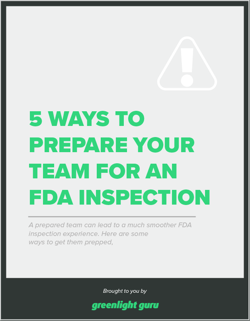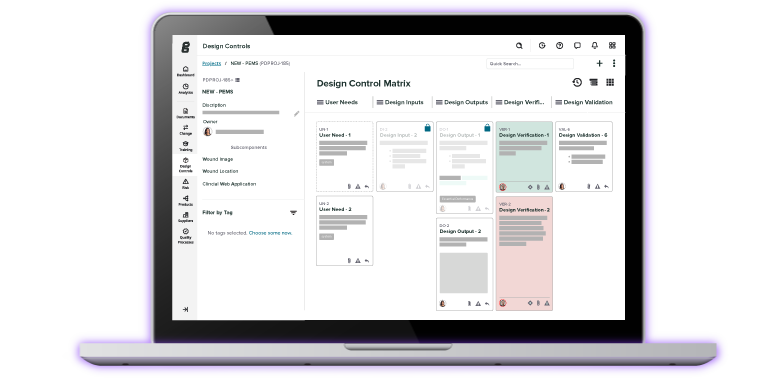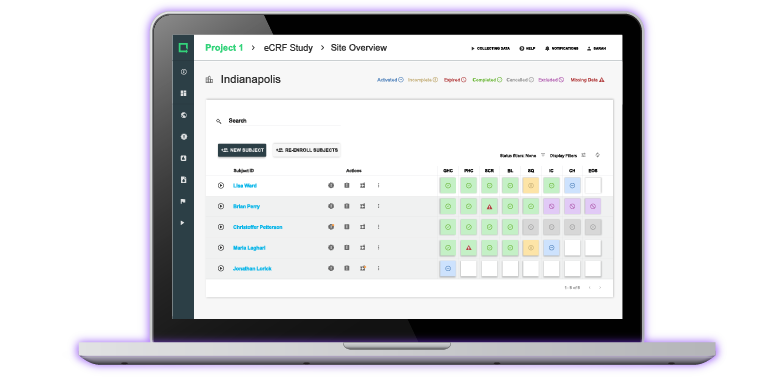
FDA has arrived at your premises…
What is your reaction? Are you ready?
If you’re lucky, the FDA might have announced that they’re coming, but otherwise, they may turn up at any time. This means your company needs to be prepared at all times to go through an inspection.
Here are some of the do’s and don’ts that we commonly see medical device companies trip over:
Be Prepared! Don’t think the FDA won’t come! People often hear that an inspection will happen, but don’t really believe it. Inspections are mandated, particularly for Class II or III medical devices. You will be inspected and the inspection may or may not be announced.
The FDA doesn’t have to tell you that they’re coming. When they do announce, it’s more of a courtesy. Historically, they do announce routine inspections but don’t announce “for cause” inspections where there has been an issue with either your products or similar competitor products. In that case, they might decide to inspect manufacturers of similar products, particularly if they’ve found serious or common issues.
Pay attention to competitors and what’s happening in the marketplace. Are there quality issues at stake? You can find reports of any problems on FDA’s MAUDE database. Do your own due diligence and review adverse events - it’s important to know what’s happening in the industry.
What does being prepared entail?
This all leads into an obvious “do” for FDA inspections: be prepared.
How?
First, have a good QMS in place and follow it! It’s not good enough to just have procedures that aren’t being followed. The biggest things you can do and are in control of is: say what you’re going to do, do what you say, and record it all.
Your documentation is a big deal when it comes to any FDA inspection. The old adage “if it’s not documented, it didn’t happen” applies.
Here are some do’s and don’ts for being prepared:
- DO review the FDA guidelines (FDA QSIT guide). The guidelines tell you how the FDA runs inspections so that you can have your team and documentation prepared.
- DO have a procedure in place for an FDA inspection. Know what room you’re going to put the FDA in, know who will be your primary interfaces from your team, and who your subject matter experts are. The idea is that when an inspector shows up, they should find a well-oiled machine, not be greeted with chaos and general hushed cries of “Ahhh , the FDA is here.” Impressions do count as they go through your inspection. The general thought is “how you do anything is how you do everything.” Have a clear process worked out for what you’re going to do when they show up.
- DON’T give the FDA inspector access to a system or filing room to look through themselves. Have everything ready to give to them. For example, you already know FDA is interested in your CAPA procedures, so have a log or list ready to go - the same goes for your complaints.
Internal audits
Internal audits should never be a checkbox activity. They should be viewed as a process that really matters to the success of your business.
Have a robust internal auditing program. This should be active and ideally tougher than any FDA inspection or external audit. Good self-policing makes a huge difference. You don’t have to show FDA your actual internal audit results, but you do have to demonstrate that you’re doing them. Keep a log of when internal audits are scheduled and dates when conducted. A tip is to go through a mock audit ahead of time.
This is also a good opportunity for some coaching of your team members. As long as they are prepared, they shouldn’t fear a FDA inspection. What should they say and how should they interact? Where are things found that FDA will ask for?
For example, train your team members to answer the question directly, nothing more. “Have you conducted internal audits?” Answer, “Yes.” “When was your last internal audit?” Answer, “(Date).” This isn’t to be obstructive in any way, but simply to say give them no more or less than what they’re asking for.
There’s a lot to be said for preparing teams so that there is less anxiety when an inspector shows up.
Documentation
Records should be structured in a way that is usable and accessible. As a friend of ours likes to say, “worry less about FDA, more about litigation attorneys.” Those documents you generate are proof; evidence that you did something. Remember, if it’s not documented, it didn’t happen.
Documents scattered across multiple file cabinets, hard drives, and desks present a huge challenge as you’re now dependent on other people to bring the documents together. You might have the best people on your team, but they’re not all available at all times, are they? Here are some other documentation best practices.
If an FDA inspector makes a request for something and you can’t retrieve it, then it appears that your house is not in order. Be as quick as possible. What will that inspector be doing while waiting for those things? Asking more questions. You now have 4-5 people running around looking for things while the inspector asks for more items. A timely response makes the inspection go much smoother.
Design Controls
If you are a new company, there will be a lot more emphasis put on your design control activities (though this expectation still falls on established companies, too). How does your design control process meet FDA criteria? FDA will look at your design history file (DHF) for all activities and will look at things like how accurately you’ve classified your product.
They’ll look for copies of your 510(k), which you might think is strange - they’re the FDA, don’t they have it already? Remember here that the field inspector is from a different office than reviewers. They don’t always have your 510(k) immediately at hand. Your records should be the most up-to-date and they are counting on that.
A common stumbling block we come across is that period where you’ve transitioned from design phase to production. There will always be changes; for example, perhaps materials need to change or some coding needs to be debugged. FDA wants to know about these changes. They are looking at how you assess and evaluate the impact of those changes. They’re also looking for your risk assessment as part of that change. Should you have filed a new 510(k)?
Your risk management file will probably be reviewed closely, especially if software is involved. You need to prove you are using solid risk-based decision processes.
Final Thoughts
“Be prepared for inspection at any time” is really the mantra to follow. It shouldn’t come as a surprise when FDA follows its mandate and turns up at your premises.
“Document, or it didn’t happen” is a key part of being prepared for audit. Your quality management system (QMS) will be front and center for any inspector and you need to have it well-organized.
We have some other resources for you to check out on inspections:
An inspection will always be a little stressful, but it doesn’t have to be a huge deal if you’re always prepared for it.
Still using a manual or paper-based approach to manage your design controls or quality processes? Click here to learn more about how Greenlight Guru's modern eQMS software platform exclusively for medical device companies is helping device makers all over the globe in more than 50 countries get safer products to market faster with less risk while ensuring regulatory compliance.
Jon Speer is a medical device expert with over 20 years of industry experience. Jon knows the best medical device companies in the world use quality as an accelerator. That's why he created Greenlight Guru to help companies move beyond compliance to True Quality.
Related Posts
Why Document Control Matters To Medical Device Companies
4 Medical Device Quality System Musts for Startups
FDA QSIT: Preparing Your Medical Device Company for an Inspection
Get your free resource
5 Ways to Prepare Your Team for an FDA Inspection









